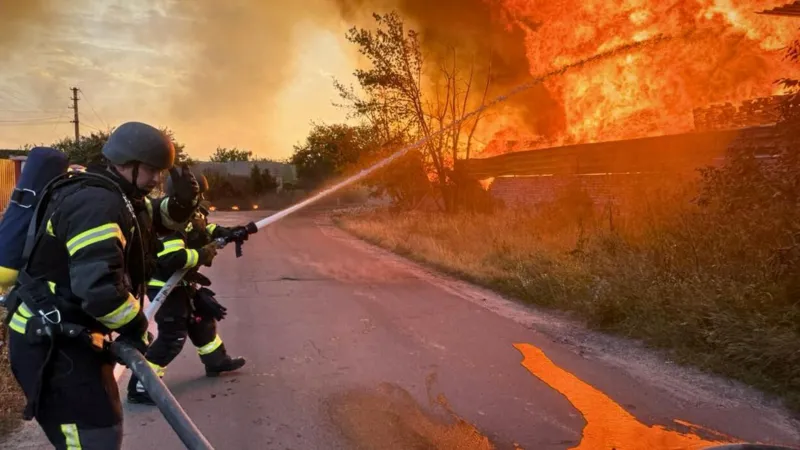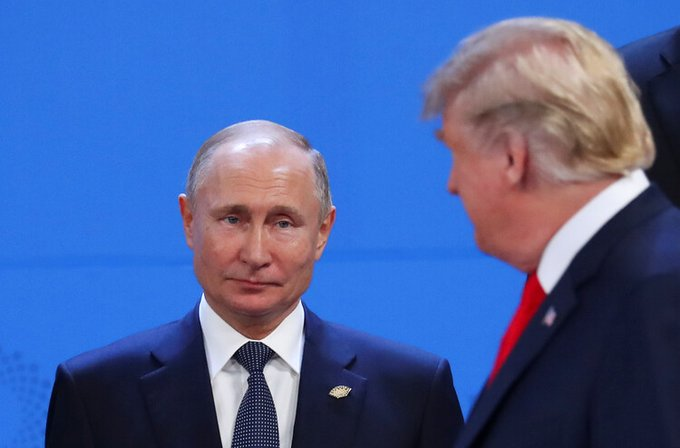- Get link
- X
- Other Apps
- Get link
- X
- Other Apps
Ukraine has faced its largest air assault since the beginning of the war, with President Volodymyr Zelensky confirming that 728 drones and 13 cruise or ballistic missiles struck cities across the country in repeated waves. The unprecedented attack took place shortly after U.S. President Donald Trump openly criticised Russian President Vladimir Putin and reversed a short-lived suspension of military aid to Ukraine. The reversal reportedly came after Trump learned of the suspension, which he claimed to be unaware of, despite being seated beside Defence Secretary Pete Hegseth during a press conference.
read also: Red Bull Horner SACKED after 20yr stint just 12 months on from sext scandal
Zelensky called the attack a “telling” escalation, stating that it comes just as global efforts were ramping up to establish a ceasefire. He condemned Russia for refusing to participate in peace initiatives. Meanwhile, Trump, expressing visible frustration, accused Putin of being disingenuous, calling his pleasantries “meaningless” and suggesting that Putin “just wants to keep killing people.” Kremlin spokesman Dmitry Peskov downplayed Trump’s tone, saying Moscow is “pretty calm” and familiar with his harsh style of speech.
The sudden change in U.S. policy means that 10 Patriot missile systems might soon be sent to Ukraine. These are considered vital for intercepting the growing wave of Russian missile and drone attacks. The shift highlights growing tensions and continued uncertainty in U.S. foreign policy toward Ukraine as the war intensifies.

While Ukraine continues to absorb repeated Russian attacks, the conflict shows no signs of resolution. No part of the country has been spared from aerial bombardments. On Tuesday night, the western city of Lutsk located only 90 kilometres from the Polish border suffered some of the heaviest damage. Other cities in western Ukraine, including Lviv and Rivne, were also hit. Lutsk serves as a key transit point for both humanitarian and military aid entering the country from NATO allies.

The broader pattern reflects Russia’s intensifying summer offensive. Despite two rounds of peace negotiations earlier this year, no further talks have taken place, and optimism on either side is fading. President Zelensky continues to appeal for international support, especially air defence systems, to repel the daily waves of Russian attacks. Trump’s new approval for more U.S. military aid, including Patriot missiles, could provide some relief, though it’s unclear how quickly it can be deployed or how much of a difference it will make in the short term.
Meanwhile, the Kremlin remains confident in its military progress. On Wednesday, spokesman Dmitry Peskov claimed, “We are moving forward,” and added that Ukraine must “accept the new realities.” Despite repeated losses and widespread devastation, Russia appears committed to grinding down Ukrainian defences. The war, sparked by Russia’s full-scale invasion in February 2022, is now deeply entrenched, and with no ceasefire in sight, the human cost continues to rise. The latest developments have added to fears that the war could escalate further, potentially drawing in more direct international involvement.
- Get link
- X
- Other Apps
Comments
Post a Comment